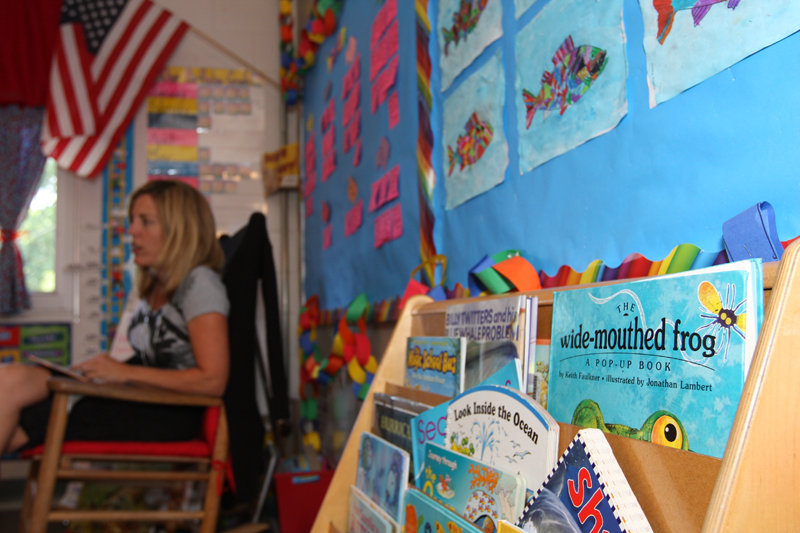Literacy
Reading
Trinity's Middle School reading program reflects the integrated nature of a balanced literacy program. The reading program provides instruction in the  five components of reading: phonemic awareness, phonics, vocabulary, fluency, and comprehension as well as the engagement in independent reading. Reading for pleasure and reading for information receive equal instructional attention.
five components of reading: phonemic awareness, phonics, vocabulary, fluency, and comprehension as well as the engagement in independent reading. Reading for pleasure and reading for information receive equal instructional attention.
Kindergarten
Numerous literacy experiences are provided daily to ensure a tremendous amount of exposure to words, stories, and vocabulary to help support and build the students’ background knowledge. As they become more independent in their reading and writing, they must draw upon their background knowledge to be successful. Students begin reading and writing independently through the forum of the Writer's Workshop model. They are trained to take their ideas and turn them into pictures and words to create stories. They are taught to read the words they are writing to gain an understanding of how letters go together to form words. Reading the work they as authors have created are meaningful ways for them to become literate. As they begin to understand that words tell stories, they are introduced to simple texts through small guided reading groups which allows for differentiation of reading skills and strategies.
First Grade
These are the years when most children begin to become independent readers. Children have a variety of reading experiences during these years: whole group shared reading, read alouds, sustained- uninterrupted reading time, buddy reading, listening to reading using ipods and computers. Children continue to learn to read using literature and they are encouraged to participate actively in the choice of books they will read. Children are given instruction in small groups and as individuals in developing reading strategies (e.g. using the context to figure out unknown words and their meaning; using phonetic analysis to decode unfamiliar words; making inferences). Children also use nonfiction text and the internet to acquire information. They record themselves reading and listening to self assess if they are reading fluently. Each child meets with the teacher often (twice a week is the minimum goal) to read together and be given intensive individualized instruction in reading.
Second Grade
The goal in Second Grade is to ensure there is a solid foundation of reading skills and strategies in place. They are beginning to make the shift from learning to read to reading to learn. As this shift occurs, teachers focus on word study skills, vocabulary development, comprehension skills and strategies, and increase background knowledge. To do this effectively, teachers provide whole group and small group instruction, modeling, read alouds, and conferencing opportunities for students. Students are encouraged to read a variety of genres and practice specific reading skills and strategies such as previewing text, re-reading for accuracy, and summarizing as they work on increasing their sustained independent reading time.
Third, Fourth, and Fifth Grades
There is an increased emphasis on developing the child's ability to read widely and to choose appropriately from a wide variety of books. Children continue to have regular reading conferences with their teachers, at which time they discuss strategies for choosing books and reading them with understanding. They share their impressions with the teacher at this time and with others in reading response groups.
Children read nonfiction books related to the core curriculum. They use books as resources for their written research, artwork, and other projects. Students at this stage often have content related reading for homework. In addition, they are expected to read self-selected literature each night. The amount of reading and homework greatly increases with each year. Core curricular material is often distributed to all the students and the teacher frequently asks students to prepare written responses to the reading. Foundations of the synthesizing process- from gathering information, to thinking about it, to expressing responses in writing- are laid in the late years of Middle School.

